19th Century
Edgar Allan Poe's Women
Virginia Eliza Clemm
Virginia Eliza Clemm was seven years old when she met her future husband,
her cousin, Edgar Allan Poe. At the time, Edgar had been discharged from the
army and came to live with the poor family. Little Virginia acted as a
messenger between him and a young woman in the neighborhood he had become
smitten with. Edgar developed a softness of heart for his devoted little cousin.
Edgar left the family to take a job in Baltimore. While there, poor Virginia’s siblings died and she was left alone with her destitute parents. Protective over his devoted little cousin, Edgar decided to marry her, but she was far too young. Neilson Poe, the husband of Virginia’s half-sister, Josephine Clemm, and newspaper magnate heard about Edgar’s interest in marrying the very young Virginia and intervened by offering to take her in and educate her. This angered Poe who saw it as a blatant attempt by his bitterest enemy to keep him and Virginia apart. So he took pen, a mighty weapon in the hands of such a talented writer, and wrote a heartfelt, emotional letter to Virginia’s mother and father pleading that they allow Virginia to make her own decision. In his letter he offered to take care of them all if they moved to Richmond.
They agreed and Poe married Virginia in 1836. Edgar was 27 and Virginia was 13. They honeymooned in Petersburg, Virginia. Needless to say, this marriage between first cousins raised more than an eyebrow. Many believed the couple never consummated the marriage, while others surmised Edgar waited until his bride was 16 before bedding her. Nevertheless, but by all accounts, Edgar and Virginia were a very happy, devoted couple. That is, despite his ever increasing dependence on alcohol and stimulants. On one Valentine’s day, Virginia wrote a love poem to her beloved husband:
Edgar left the family to take a job in Baltimore. While there, poor Virginia’s siblings died and she was left alone with her destitute parents. Protective over his devoted little cousin, Edgar decided to marry her, but she was far too young. Neilson Poe, the husband of Virginia’s half-sister, Josephine Clemm, and newspaper magnate heard about Edgar’s interest in marrying the very young Virginia and intervened by offering to take her in and educate her. This angered Poe who saw it as a blatant attempt by his bitterest enemy to keep him and Virginia apart. So he took pen, a mighty weapon in the hands of such a talented writer, and wrote a heartfelt, emotional letter to Virginia’s mother and father pleading that they allow Virginia to make her own decision. In his letter he offered to take care of them all if they moved to Richmond.
They agreed and Poe married Virginia in 1836. Edgar was 27 and Virginia was 13. They honeymooned in Petersburg, Virginia. Needless to say, this marriage between first cousins raised more than an eyebrow. Many believed the couple never consummated the marriage, while others surmised Edgar waited until his bride was 16 before bedding her. Nevertheless, but by all accounts, Edgar and Virginia were a very happy, devoted couple. That is, despite his ever increasing dependence on alcohol and stimulants. On one Valentine’s day, Virginia wrote a love poem to her beloved husband:
Ever with thee I wish to roam —
Dearest my life is thine.
Give me a cottage for my home
And a rich old cypress vine,
Removed from the world with its sin and care
And the tattling of many tongues.
Love alone shall guide us when we are there —
Love shall heal my weakened lungs;
And Oh, the tranquil hours we'll spend,
Never wishing that others may see!
Perfect ease we'll enjoy, without thinking to lend
Ourselves to the world and its glee —
Soon, however, scandal touched their
lives. Edgar began to flirt with a young married woman and poetess named
Frances Sargent Osgood. Aware of the relationship, Virginia reluctantly encouraged
it, often inviting Frances to her home because the woman’s presence seemed to curtail
Edgar’s drinking. So everything was tolerable for a while. After all, Virginia knew
it was best to keep one’s enemies close. This way she could keep a close on the
relationship.
Elizabeth Fries Lummis Ellet
Enter Elizabeth Fries Lummis Ellet, another writer and poet. She became
infatuated with Poe and jealous of Frances. But Edgar had no interest in
Elizabeth. He found her love for him loathsome and did all that he could to
repel it with scorn. He printed many of her poems to him in a journal of which
he edited.
One day,
while visiting Poe, Virginia showed the meddling, spiteful Ellet one of Osgood's
personal letters to Poe and pointed out some questionable paragraphs. Jealous
of Osgood, Ellet took matters into her own hands and contacted her nemesis. She
strongly warned the woman to beware of her indiscretions and asked that her own
letters be returned by Poe. Osgood did what she could to appease the vengeful
Ellet and sent two women to ask Poe for the letters. Angered by their
interference, Poe called the women busy-bodies and told them that Ellet had
better look after her own letters. He then gathered up all
Ellet’s letters and dumped them at her house.
But even with
her letters returned to her, still bent on revenge, Ellet asked her brother,
Colonel Willaim Lummis, to intervene. Lummis, did not believe that Poe had
already returned the letters and threatened to kill him. Hearing this, Poe
requested a pistol from his friend Thomas English so he could protect
himself. But even English didn’t believe Poe had returned the letters and
questioned their existence. Angered at being called a liar, Poe and his
friend came to blows. The fight only sparked more gossip over his affair with Osgood.
Unfortunately
things didn’t end there. Osgood's husband threatened to sue Ellet unless she
formally apologized for her insinuations. This she did, in writing, citing that
the letter Virginia had shown her must have been a forgery by Poe because he
was intemperate and prone to lunacy. Poe’s enemies were only too eager to put
this into print, saying Poe was deranged and insane.
All this
deeply affected poor Virginia and she soon began to receive letters about her
husband’s affair and indiscretions. She strongly believed the letters were
coming from Ellet.
Virginia developed consumption, also known as tuberculosis and her
health declined. Soon, she became bedridden. His wife’s illness made Poe
depressed. He even wrote that her illness made him insane between “long intervals
of horrible sanity.” Virginia’s illness and Poe’s depression drove them into
destitution. He sought solace in alcohol. After her death, Poe went into a tailspin. The loss of his wife was more
than he could bear. He did not care about anything anymore. Alcohol continued
to numb his pain. He regularly visited Virginia's grave, in the dead of night,
in the cold snow. His relationship with Osgood had ended when she returned to
her husband, but Frances believed that Virginia was the only woman Poe truly loved.
THE RAVEN
BY
EDGAR ALLAN POE
_______________________________________________________________________
Back Cover Blurb
A writer and his
demons. A woman and her desires. A wife and her revenge
Inspired by literature’s most haunting love triangle, award-winning author Lynn Cullen delivers a pitch-perfect rendering of Edgar Allan Poe, his mistress’s tantalizing confession, and his wife’s frightening obsession . . . in this “intelligent, sexy, and utterly addictive” (M. J. Rose) new masterpiece of historical fiction.
1845: New York City is
a sprawling warren of gaslit streets and crowded avenues, bustling with new
immigrants and old money, optimism and opportunity, poverty and crime. Edgar
Allan Poe’s “The Raven” is all the rage—the success of which a struggling poet
like Frances Osgood can only dream. As a mother trying to support two young
children after her husband’s cruel betrayal, Frances jumps at the chance to
meet the illustrious Mr. Poe at a small literary gathering, if only to help her
fledgling career. Although not a great fan of Poe’s writing, she is nonetheless
overwhelmed by his magnetic presence— and the surprising revelation that he
admires her work.
What follows is a flirtation, then a seduction, then an illicit affair . . . and with each clandestine encounter, Frances finds herself falling slowly and inexorably under the spell of her mysterious, complicated lover. But when Edgar’s frail wife Virginia insists on befriending Frances as well, the relationship becomes as dark and twisted as one of Poe’s tales. And like those gothic heroines whose fates are forever sealed, Frances begins to fear that deceiving Mrs. Poe may be as impossible as cheating death itself. . . .
My Review
Mrs. Poe by Lynn Cullen is a beautifully rendered story about the two women, Virginia Clemm (wife) and Frances Osgood (mistress) who each deeply influenced Edgar Allan Poe's life. In this biographical historical fiction novel, the author paints a story of deep passionate love, betrayal, duty, and jealousy. Although the novel is entitled Mrs. Poe, I found the stronger focus on Frances rather than Virginia in the story. Both women were well characterized: Virigina weak and sickly, but staunch in her love for her husband, even to the point of bitter jealousy, and Frances who walked a fine line between her broken marriage, the tensely awkward friendship with Virginia, and her passion for Edgar Allan Poe. I liked the women's vastly different personalities - it really added interest throughout the story.
What fascinated me was that the author, whether intentional or not, managed to capture the dark side of all the characters, just like Poe himself did in all his writings. Coupled with lyrical prose and a fascinatingly complicated love triangle, the book held my attention from start to finish, giving me an insight into the tumultuous life of not only the characters, but of writers and the struggles they faced. This is an excellent novel, albeit perhaps with the author's strong personal interpretation of the facts. An excellent book for those that love biographical novels about women set in Victorian times. Definitely recommended.





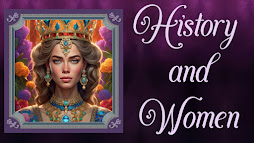


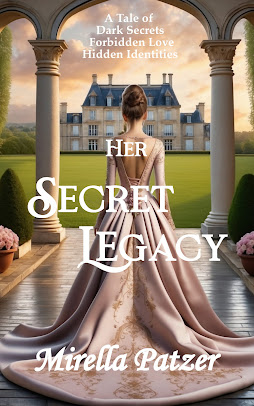

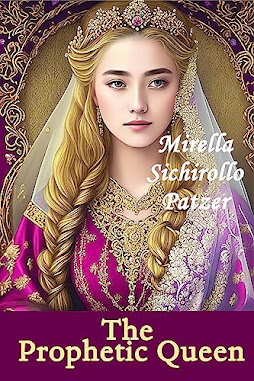
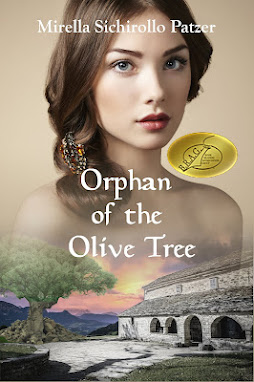
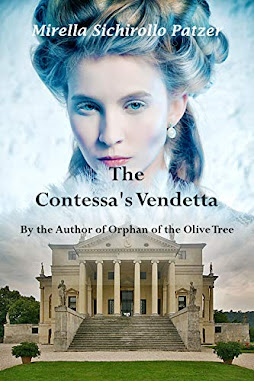










Post a Comment
1 Comments
I agree with your comments on the book. Very well written and capturing my attention from beginning to end. It has left me digging to find which parts of it are fiction and which are fact.